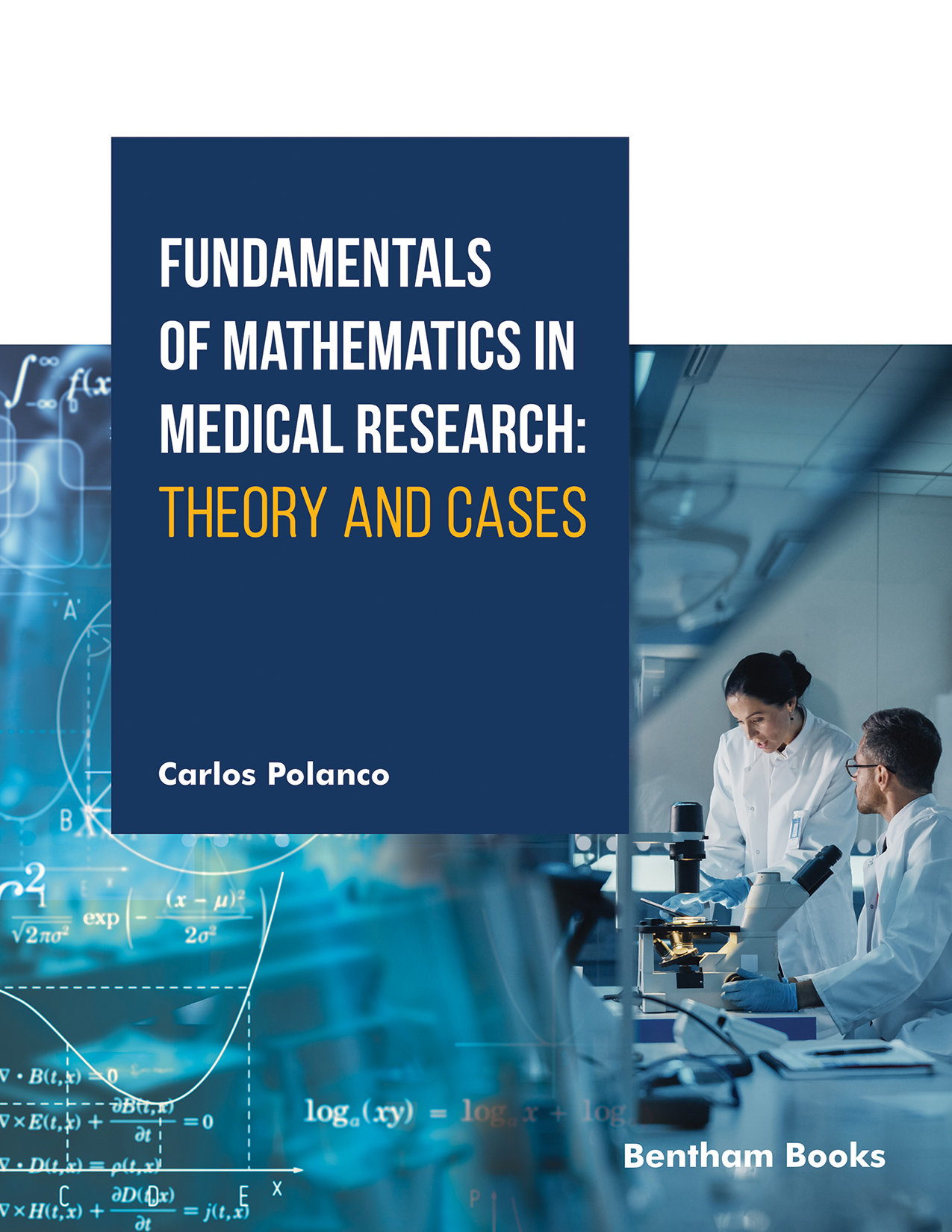FOREWORD I
The comprehensive guidebook “Fundamentals of Mathematics in Medical Research” bridges the distance between mathematics and the field of medical research. This enthralling investigation offers a fresh perspective on the fundamental mathematical concepts that undergird rigorous medical analysis and decision-making.
This book provides medical researchers with a firm foundation for modeling and comprehending complex systems by delving into the complex world of functions and analyzing their behavior in both single and multiple variables. It seamlessly transitions to probability, enabling readers to comprehend the inherent uncertainty in medical data and providing them with the tools to make informed decisions.
The book chapter, Estimation and Decision Theory, reveals the complexities of statistical inference and optimal decision-making. With an emphasis on Nonparametric Statistical Methods, the text emphasizes approaches to data analysis that are robust and adaptable to a variety of medical research circumstances.
In addition, “Fundamentals of Mathematics in Medical Research” ventures on an illuminating journey through Correlation Theory, shedding light on the intricate relationships between variables and their influence on medical research outcomes. It deftly examines the art of curve fitting, allowing researchers to uncover concealed patterns and trends in data, thereby enhancing their ability to make precise predictions.
With a distinct emphasis on Multivariate Analysis of Variance, this book equips medical researchers with effective techniques for dissecting complex data sets, thereby enabling the extraction of insightful information. The paper concludes by exploring Discrete-Time Markov Chains, illuminating the intriguing world of stochastic processes and their applications in medical research contexts.
“Fundamentals of Mathematics in Medical Research” provides a comprehensive framework for medical researchers to navigate the complexities of data analysis, modeling, and decision-making through its insightful and accessible approach.
This invaluable resource not only equips readers with mathematical tools, but also instills confidence in their capacity to analyze medical research data critically, nurturing a deeper comprehension of its implications for patient care and scientific progress.
Vladimir N. Uversky
University of South Florida
Tampa, FL, USA
FOREWORD II
“Fundamentals of Mathematics in Medical Research” is an indispensable resource that bridges the divide between mathematics and its applications in medical research. This exhaustive book examines a vast array of mathematical concepts and techniques that are essential for conducting rigorous and evidence-based medical research.
In today’s data-driven healthcare environment, medical researchers require a firm foundation in mathematics to analyze and interpret complex data sets, make informed decisions, and draw meaningful conclusions. This book is a valuable resource for both aspiring and established medical researchers, equipping them with the mathematical tools necessary to navigate the complexities of their work.
The book begins by establishing the groundwork by examining the functions of a single variable and multiple variables. Through lucid explanations and illustrative examples, the reader is introduced to essential mathematical functions and their applications in medical research. Understanding these concepts is essential for accurately modeling medical phenomena and conducting statistics.
Probability, a linchpin of contemporary statistics, is an additional focus of this volume. The authors highlight the fundamentals of probability theory and instruct readers on how to quantify uncertainty and make sound decisions based on statistical inference. By mastering probability theory, medical researchers acquire a potent instrument for assessing the probability of events and making confident predictions.
Estimation and Decision Theory play a crucial role in medical research, and this book provides a thorough study of on these subjects. The reader will learn numerous estimation techniques, such as point estimation and interval estimation, as well as optimization-based decision-making strategies. With these instruments, researchers can make decisions based on data and derive valid conclusions from their studies.
When coping with data that does not conform to traditional parametric assumptions, non-parametric statistical methods are indispensable. This book covers the fundamentals of non-parametric statistics and equips readers with alternative methods for analyzing and interpreting data sets with complex or irregular distributions.
Correlation Theory investigates the relationships between variables, enabling researchers to recognize associations and dependencies in their data. This book provides a comprehensive overview of correlation analysis techniques, allowing medical researchers to identify meaningful relationships between variables and disclose crucial insights.
The potent mathematical technique of curve fitting is used to model and analyze empirical data. The authors provide a comprehensive introduction to curve fitting methods, enabling readers to apply mathematical models to actual medical data. This enables the characterization and prediction of medical phenomena, aiding researchers in their pursuit of effective diagnostic, therapeutic, and preventative strategies.
Multivariate Analysis of Variance (MANOVA) is an indispensable statistical technique for examining the relationship between multiple variables. This book enables medical researchers to analyze complex data sets with multiple factors and evaluate the significance of their findings by investigating the principles and applications of MANOVA.
The book concludes with an in-depth examination of discrete-time Markov chains. These mathematical models capture the dynamics of sequential events and transitions, making them indispensable for comprehending and predicting medical processes and outcomes. By analyzing discrete-time Markov chains, medical researchers can model the behavior of medical phenomena over time and make accurate forecasts.
Thomas Buhse
Universidad Autonoma del Estado de Morelos
Cuernavaca Morelos, Mexico

